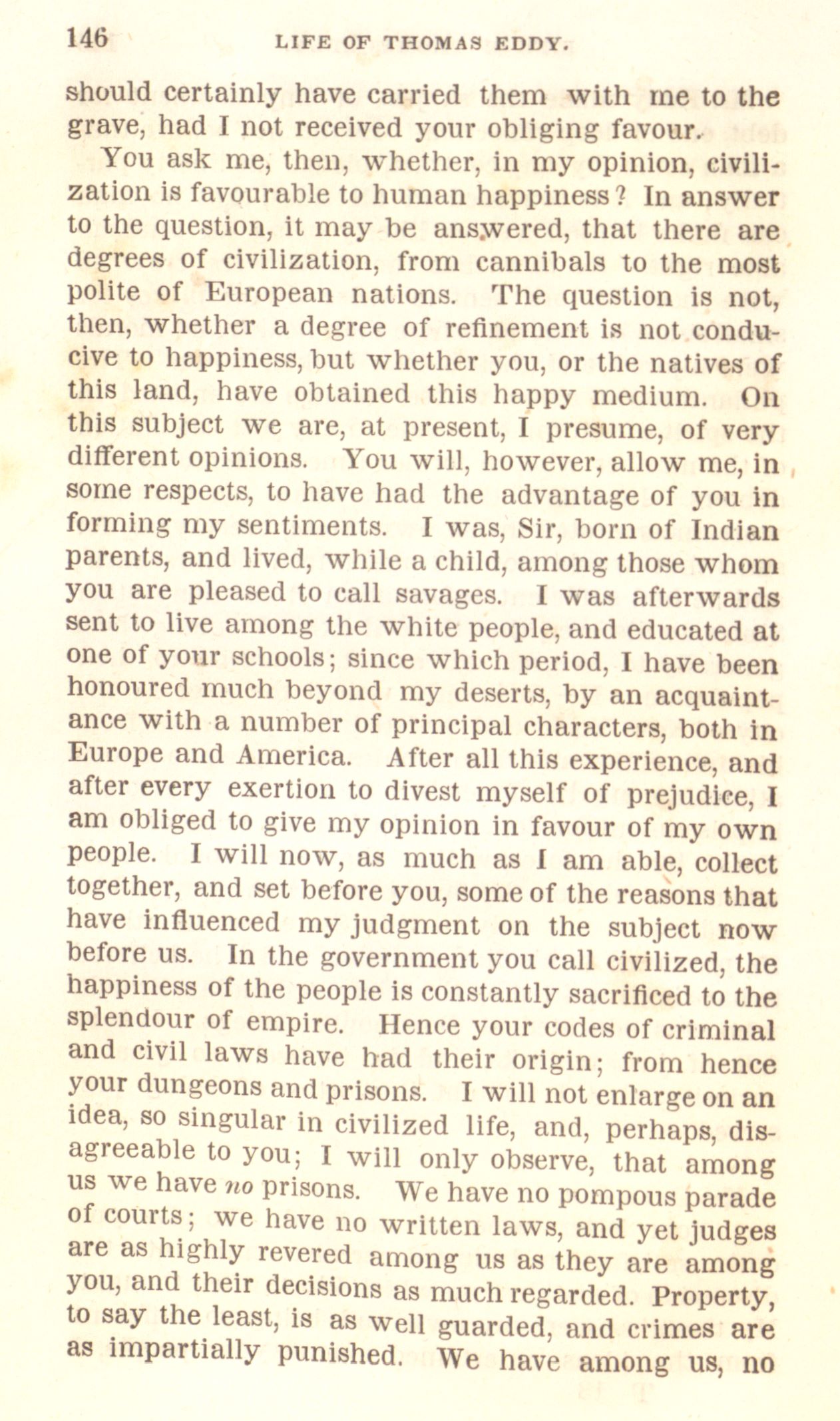should certainly have carried them with me to
the
grave, had I not received your obliging favour.
You ask me, then, whether, in my opinion, civili-
zation is
favourable to human happiness? In answer
to the question, it may be
answered, that there are
degrees of civilization, from cannibals to
the most
polite of European nations. The question is not,
then,
whether a degree of refinement is not condu-
cive to happiness, but
whether you, or the natives of
this land, have obtained this happy
medium. On
this subject we are, at present, I presume, of
very
different opinions. You will, however, allow me, in
some
respects, to have had the advantage of you in
forming my sentiments.
I was, Sir, born of Indian
parents, and lived, while a child, among
those whom
you are pleased to call savages. I was
afterwards
sent to live among the white people, and educated
at
one of your schools; since which period, I have been
honoured
much beyond my deserts, by an acquaint-
ance with a number of
principal characters, both in
Europe
after every exertion to divest myself of prejudice, I
am obliged to give my opinion in favour of my own
people. I will now, as much as I am able, collect
together, and set before you, some of the reasons that
have influenced my judgment on the subject now
before us. In the government you call civilized, the
happiness of the people is constantly sacrificed to the
splendour of empire. Hence your codes of criminal
and civil laws have had their origin; from hence
your dungeons and prisons. I will not enlarge on an
idea, so singular in civilized life, and, perhaps, dis-
agreeable to you; I will only observe, that among
us we have no prisons. We have no pompous parade
of courts; we have no written laws, and yet judges
are as highly revered among us as they are among
you, and their decisions as much regarded. Property,
to say the least, is as well guarded, and crimes are
as impartially punished. We have among us, no

